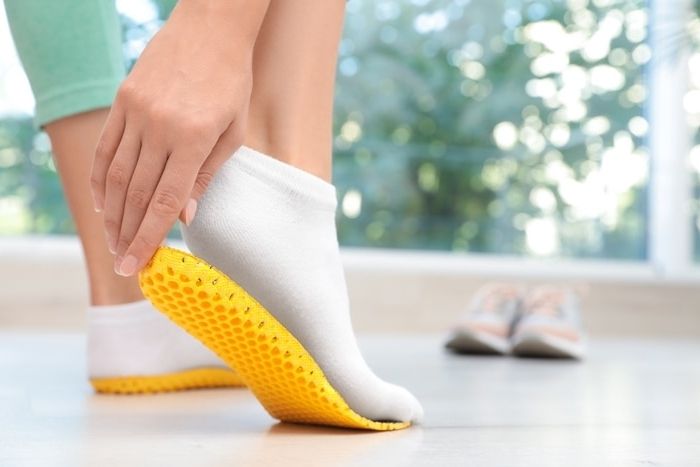
The foot arch is classified as either high, medium, or flat. High and flat arches are more prone to inflammation.
Arch supports, also known as orthotics, are special shoe inserts that a podiatrist prescribes to support your foot arch to treat leg, foot, and back problems. They’re often made from plastic, gel, foam, or other materials. They’re beneficial in many ways, such as in:
- Distribution of pressure on the foot and other parts of the body
- Aligning your back, knee, and hips
- Alleviating or preventing some foot ailments
- Prevent your foot arches from harm
- Offer balance and stability by filling the spaces in your arches
Below are some situations that would make your podiatrist recommend the use of arch support insoles:
1. Plantar Fasciitis
This is a common heel pain. The inflammation of the plantar fascia is usually characterized by a stabbing pain in the heel, especially when you take your first steps after waking up. When you move around, the pain decreases only to come back when you stand or sit for too long.
If diagnosed with plantar fasciitis, your podiatrist will recommend using insoles with solid arch support to help remedy this situation by decreasing the weight load in your plantar fascia.
2. Overpronation Or Underpronation
Pronation refers to how your feet move from side to side when running or walking. When it rolls too much inwards, it’s referred to as overpronation; on the other hand, when it moves too much outward, it’s called underpronation. Both of these situations can make you prone to foot pain and injuries.
Moreover, underpronation primarily affects people with high arches, while overpronation mainly occurs in people with flat feet. Thus, it’s advisable to undergo orthotics that will provide the needed support for both conditions to help balance and stabilize your pronation.
3. Being Overweight
Being overweight increases the risk to your overall health and places excess pressure on your lower body, especially on your feet and back. To help your lower body deal with excess weight, your orthopedist or podiatrist will recommend, among other measures for your wellbeing, the use of insoles to support your lower body, absorb your weight, and increase your balance and stability.
4. Heel Spurs
A heel spur, known as a bone spur, is a bone that grows out of the bottom of your heel at the plantar fascia. It develops as a response to the strain and stress placed on the foot’s tendons and ligaments. You may not even know that you have a heel spur until you visit a podiatrist for heel pain. Among other measures that’ll be recommended to lessen heel pain, your podiatrist will also recommend the use of insoles to cushion and protect the bottom of your foot.
5. Morton’s Neuroma
This condition results from the thickening or swelling of a nerve leading to the toes. It can be caused by pressure from running or wearing high heels. It’s characterized by shooting, tingling, and burning pain or numbness around the toes or ball of the foot. Hence, arch support with metatarsal pads will help lessen irritation and pressure.
6. Bunions
These are bumps that develop at the base of the big toe and cause a lot of pain and foot deformities. With this, an orthopedist or podiatrist will recommend insoles with a wide toe box to help lessen the pressure around the inflamed area.
7. Other Medical Conditions
Some medical conditions like diabetes and rheumatoid arthritis interfere with the proper function of the whole body, but the lower body bears the brunt. Diabetes can cause the loss of sensation on the feet and make them prone to foot ulcers. A podiatrist will prescribe orthotics to help you reduce stress and pressure on the feet.
In effect, arch support insoles can also help improve the discomfort and poor positioning of the feet in people with rheumatoid arthritis.
Conclusion
If you experience frequent foot pain or swelling, back or heel pain, your job requires long hours of sitting or standing, or any of the conditions mentioned above, you may be a candidate for orthotics. Visiting the nearest orthopedist or podiatrist will help you alleviate your pain and improve your life.